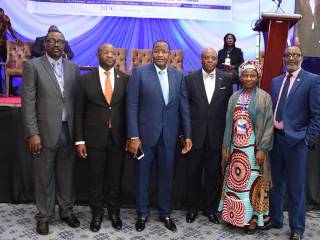In his welcome address, Mr Sunday Dare, the Executive Commissioner (Stakeholder Management) stated that, to underscore the critical importance of this Forum, a brief historical background must be done. The Nigerian telecoms industry was liberalized in 2001 and these ushered in new players, new foreign and local investors as well as widespread networks and more efficient services.
He noted that, ‘’the industry quickly grew and created more opportunities for economic development and induced multiplier effects on national development. Looking at the central role that telephony and data services – especially mobile services – play in our everyday lives, it is hard to imagine how we were able to function before 2001”
While delivering the keynote address, Professor Umar Garba Danbatta, Executive Vice Chairman, NCC, emphasised that since the full-fledged commercial mobile communications started in Nigeria in 2001, stakeholders have been grappling with the myriad of challenges which negatively impact quality of service experience in our communications networks.
Professor Danbatta noted, ‘’these challenges are generally termed as ‘Ecosystem issues’, and they manifest in frequent disruptions of the operation of telecoms infrastructure; very high and often discriminatory fees for rights-of-way and other permits’’.
Participants at the forum included representatives from different states across the federation, Heads of Agencies, Consultants and other Stakeholders.
Mr Paul Usoro, SAN, a legal practitioner gave a lecture on the ‘Legal Framework for Telecoms Infrastructure Rollout’ while Prof.Abiola Sanni, a tax Consultant gave a lecture on ‘Harmonization of Taxation/Regulation on Telecoms infrastructure’ at the forum.

